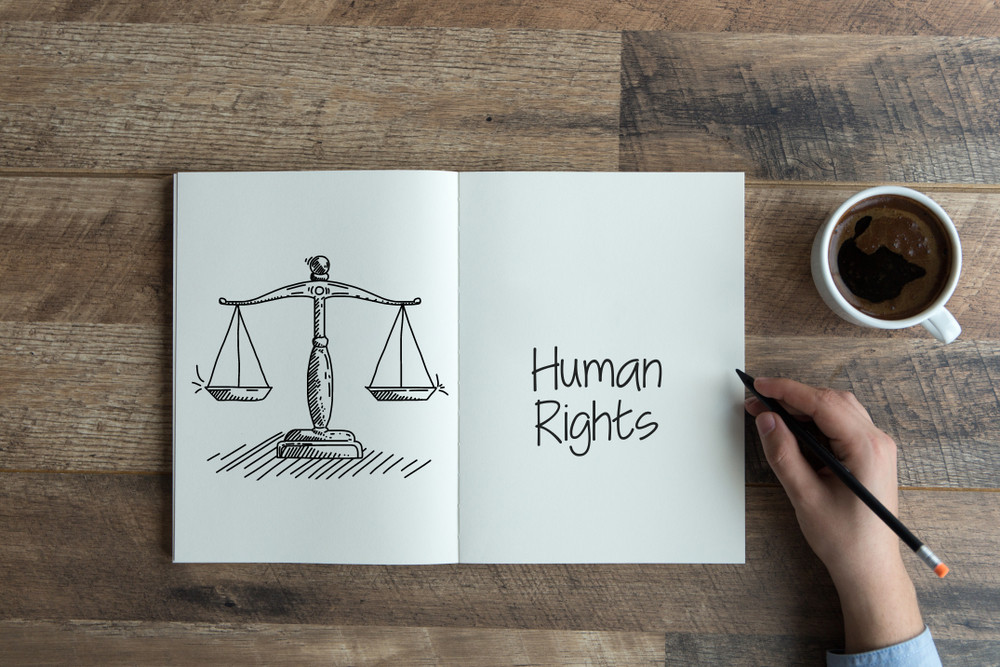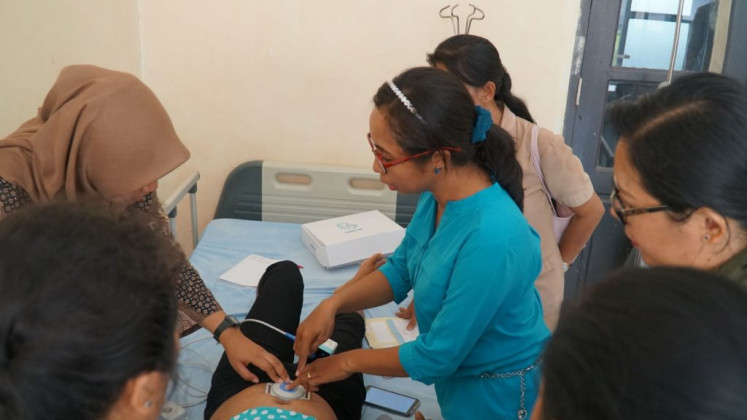Popular Reads
Top Results
Can't find what you're looking for?
View all search resultsPopular Reads
Top Results
Can't find what you're looking for?
View all search resultsTime to rethink ASEAN’s rights body
Human rights are increasingly under attack in Southeast Asia. The good news is that ASEAN has a regional body meant to address such crimes under international law. The bad news is that this body has so far proven wholly ineffective and fundamentally incapable of protecting human rights. #opinion
Change text size
Gift Premium Articles
to Anyone
H
uman rights are increasingly under attack in Southeast Asia. Atrocities against the Rohingya minority in Myanmar and extrajudicial killings through President Rodrigo Duterte’s “war on drugs” in the Philippines likely amount to crimes against humanity. In other countries, crackdowns on the press or attacks on human rights defenders are just some of the issues plaguing the region.
The good news is that ASEAN has a regional body meant to address such crimes under international law. The bad news, however, is that this body has so far proven wholly ineffective and fundamentally incapable of protecting human rights. Instead, Southeast Asian governments have been able to stay silent and stand firm in inaction when it comes to addressing atrocities in neighboring countries.
ASEAN’s human rights mechanism, the ASEAN Intergovernmental Commission on Human Rights (AICHR), was established in 2009. At that time, Thailand was the chair of ASEAN and I served as the country’s foreign minister. I led the ASEAN Foreign Ministers’ Meeting (AMM) to iron out the Terms of Reference (ToR) of the AICHR.
Despite much debate, little common ground could be found, mainly because of ASEAN’s non-interference principles and the emphasis on “consensus”.
Reluctantly, I had to announce to the public the fruit of our labors — a body whose mandate meant that it was likely to become politicized, ineffective and toothless.
This disappointment has remained over the years. AICHR’s ToR prevents it from effectively protecting human rights and fundamental freedoms. Its mandate is too weak and broad, and there are no monitoring and complaint mechanisms, meaning people in ASEAN cannot approach it directly to seek redress for violations.
Nor is it mandated to carry out any country fact-finding missions or peer reviews of ASEAN states’ human rights records. AICHR holds hundreds of activities every year to promote human rights and numerous closed-door meetings, but there is little transparency about what is discussed.
The selection process of AICHR representatives is also highly problematic. In most countries — Indonesia and Malaysia are notable exceptions — representatives are not democratically or transparently elected. This has meant that most representatives remain accountable to their own governments and are more interested in protecting their home states, rather than human rights in general.
There are notable exceptions of conscientious, genuine human rights activists who have served as representatives, but unfortunately the bigger picture has meant that their impact has been limited.
It is difficult to name any worthwhile intervention over the past decade. AICHR’s silence following the forced disappearance of Lao development leader Sombath Somphone in 2012 has been deafening. AICHR has also buried its head in the sand in the face of the Myanmar security forces’ horrific crimes against the Rohingya, for example.
Last year, a joint statement was issued by the Indonesian and Malaysian representatives calling for action to address the situation in Rakhine State. This was not an official AICHR statement, however, but only issued by two individual representatives “going rogue”. The statement also conspicuously failed to mention the word “Rohingya”, further undermining its credibility.
The result has been a mechanism that has achieved little and has had no real positive impact on improving human rights in Southeast Asia whatsoever. This is a blunt, but sadly realistic, assessment echoed by many across the region.
AICHR’s ToR prevents it from effectively protecting human rights and freedoms.
As this year marks the 10-year anniversary of AICHR and Thailand holds the ASEAN chair again, it is a good time to reevaluate its relevancy.
I recently spoke at a High Level Dialogue event on AICHR in Jakarta, where CSOs, government officials and others came together to discuss a way forward for the regional body. The feedback from civil society was overall bleak. Currently 28 NGOs have formal consultative status with AICHR. Although a seemingly promising initiative, accredited CSOs raised concerns about the amount of resources spent on very little genuine engagement.
The selection process for consultative status is also secretive and lacks transparency, meaning that some CSOs have been rejected on arbitrary lines, or even simply because they have criticized ASEAN’s human rights record.
At the event in Jakarta, CSOs raised these concerns with some of the new AICHR representatives who began their terms this year. As individual representatives, they are well-respected for being strong and vocal public advocates for victims and CSOs. But within the context of AICHR’s restrictive mandate, there is not much they can do.
As AICHR marks its first decade of existence, it is time to start asking some tough and uncomfortable questions. Should civil society engage with AICHR at all? Is it more effective to engage directly with international NGOs, governments and parliamentarians to seek advocacy goals, and bypass AICHR completely? Does a toothless AICHR’s continued existence merely mean that ASEAN has given itself a cloak of legitimacy on human rights that it barely deserves? Does it deflect legitimate human rights concerns and CSO resources away from those that have the real authority to respond? Is AICHR capable of being reformed with its existing format or would it be better to consider a new, fresh approach?
ASEAN rightly prides itself on having a diverse group of governments and cultures, but its human rights mechanism is clearly not able to stand up for the rights of its citizens. From the killing fields of Rakhine State to the slums of Manila, the people of Southeast Asia deserve — and need — better.
***
The writer, a former Thai foreign minister, is board member of ASEAN Parliamentarians for Human Rights.











